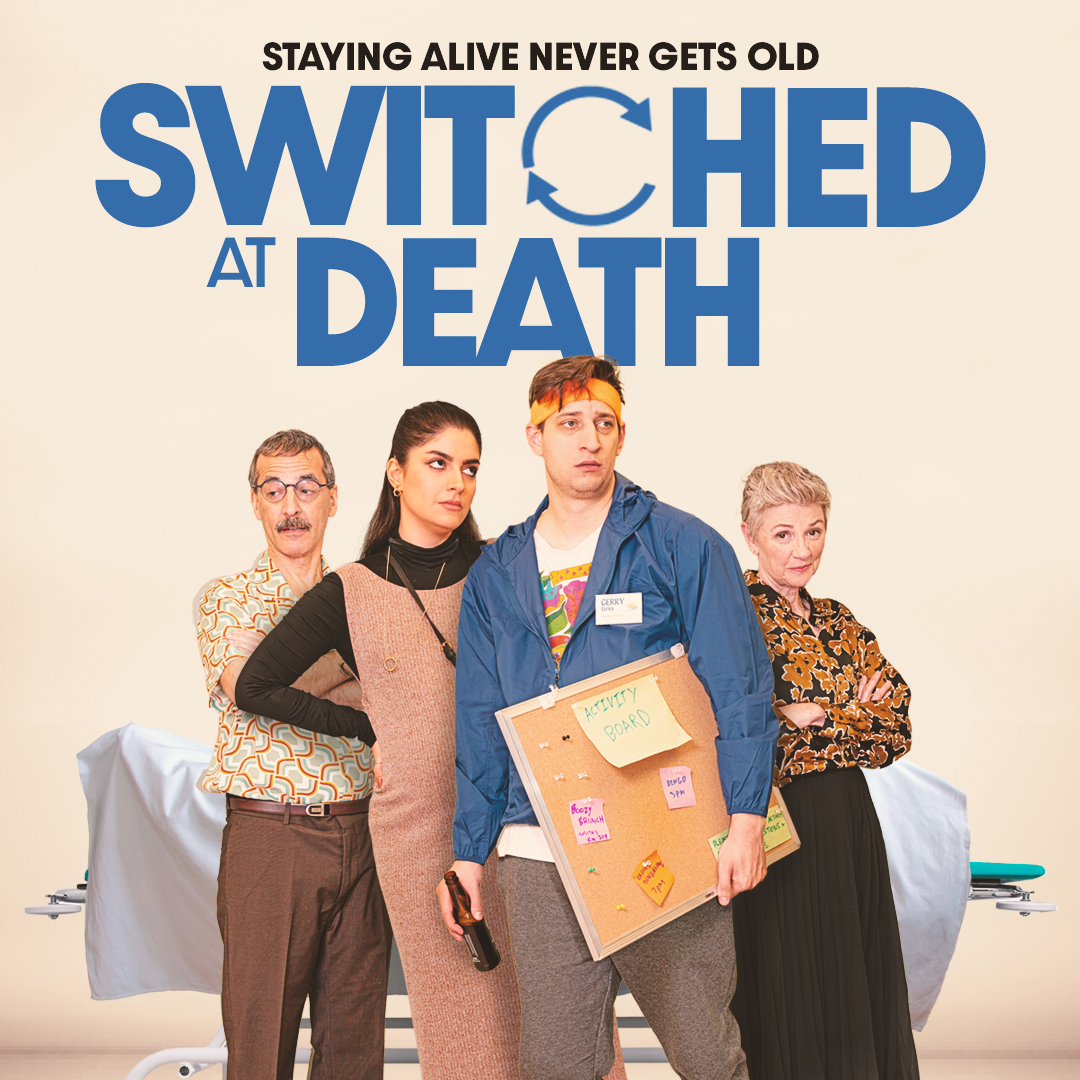We had the opportunity to check in with David Merry and learn more about his
soon to be released film,
Switched at Death.

I lived in Las Vegas in 1981 playing blackjack for a living, while I was there I went to see many comedians as that was what I truly loved when added to my magic. I saw Johhny Carson, Bob Hope, George Carlin and finally Don Rickles. Bob Hope, Don Rickles and Rodney Dangerfield had the biggest impacts on me. Eventually I went on to become a joke writer for Rodney Dangerfield and Joan Rivers. I wrote jokes for Leno at the Tonight Show but not enough to say I wrote for him. I also love Apollo Robbins known as the world’s best pickpocket. He came to me and asked me to write a bunch of material for him… he’s off the charts good!
What is your first memory of magic?
I can’t put an exact date on it but I would guess I was 7 or 8 years old. I was mesmerized instantly. After that a friend who was quite a card guy even at 13 showed me tricks he could do with an ordinary deck. He actually is our last mayor’s younger brother, Michael Tory. He became very accomplished, very early (he attended several Tannen’s Magic Camps) and that got me hooked on close-up. Not a lot of people know I’m a hard core close-up card guy! I took private lessons from Ariel Frailich, Howard Schwartzman, and Derek Dingle.
Who from the magic community inspires you?
Doug Henning obviously had a huge influence but I think the man who made me want to try doing it for a living the most was Peter Reveen. After watching him many times years ago at his Toronto run as a kid I realized that’s what I wanted to dedicate my life to.
You've previously been on screen as part of the show Too Much Information and served as director and EP for the TV show Off The Hozzle. What prompted you to make the transition from live comedy magic to television?
The Switched At Death logline and synopsis suggest a wildly entertaining plot! The screenplay was a finalist in at least four international film festivals and it won Best Screenplay at the 2019 Canadian International Film Festival. Where did the story idea come from?
Are there similarities in the work of writing a screenplay and putting together a comedy magic stage routine?
Here’s a golden rule of script writing, “Show, don’t tell” in other words if you have successfully written and shot a movie, you should be able to watch the movie with the sound off and still understand what you’ve seen. If the entire script has very little action and is all descriptive dialogue, it isn’t typically very good story telling. Magic quite often is the same, certainly an act to music with no verbiage tells its story visually, however, someone who only describes the action of what they are doing usually doesn’t connect with their audience. Example, "here’s a ball that I’ll put under this cup, it will now move to this cup.” If the trick does just that, don’t describe what they are about to see as it’s bad “storytelling.” With an act like mine (comedy magic) I use a combination of visual and the written word. I am a joke writer so I need the verbal aspect firmly ingrained in the backbone of my act hopefully heightening the visual optics.
Principal photography wrapped March 31st. Where are you in the production schedule? Where and when will we be able to see the final product?
Is there anything else you'd like to share with our readers about you or your film Switched at Death?
I have been green lit for my next film THE CAGE which is like the movie SAW. A nasty revenge type thriller that basically takes places in one location! More details to follow, should go to camera this fall or next spring!.
Thank you David, for making the time to answer our questions, and for giving
us a peek into the fascinating world of filmmaking!
To learn more about Switched at Death visit SwitchedAtDeath.com.
Learn more about David at his website DavidMerry.com and follow him on Instagram.